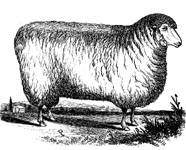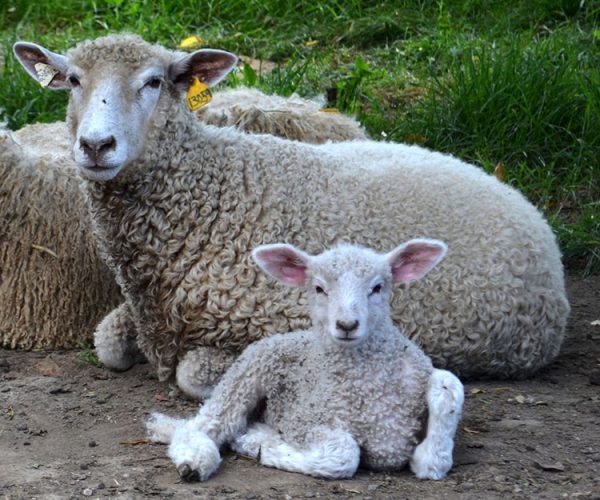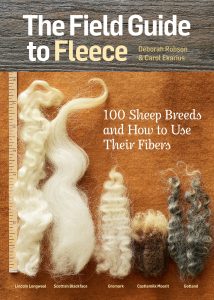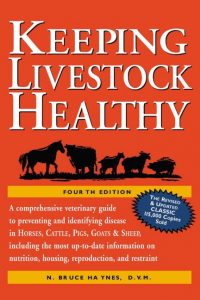
Breed Facts
Status:
Threatened
Use:
Meat, Wool
Adult Weight:
Rams: 225-300 lbs. Ewes: average 210 lbs.
Temperament:
Docile
Experience Level:
Intermediate
Notes:
Large; Hardy; largest of luster longwool breeds; slow maturing; best in cooler climates
LINCOLN SHEEP
Lincoln sheep are one of four English longwool breeds: Cotswold, Leicester Longwool, Lincoln, and Wensleydale. The Lincoln had a globally significant genetic impact on sheep breeding, but today, like most other longwool breeds, they’re globally rare and facing an uncertain future.
Longwool sheep may have been developed from the white-fleeced sheep that the Romans brought to the British Isles during their occupation. The “Luttrell Psalter” from Lincolnshire and written between 1320 and 1340, shows an illustration of a longwool sheep, and around 1460, a brass memorial with a curly fleeced sheep was placed in a church in Gloucestershire. In the 1700s, Robert Bakewell used the “old” Lincoln in the creation of his “new” Leicester sheep. Later, Lincolnshire sheep breeders used rams from Bakewell’s improved Leicesters and crossed them with “old” coarse-wool Lincoln ewes to develop an “improved” Lincoln. Offspring were further selected for earlier maturation and improved meat quality.
Lincolns gained attention during the mid-1800s, in part due to the inclusion of classes for this breed at the Royal Show. The impressive appearance of these large, dignified sheep caused a stir, especially since wool had high market value at this time. During the second half of the 1800s, Lincolns were exported in large numbers to Ireland, Europe, Australia, New Zealand, the United States, Canada, Brazil, and several other South American countries.
Lincoln sheep arrived in the US about 1800, but they were not widely distributed until the late 1800s. The National Lincoln Sheep Association was founded in the US in 1891. Lincolns were used primarily in the west and northwest for crossing with range ewes to increase their size, hardiness, and wool yield.
The Lincoln breed became rare globally during the 1900s. By 1980, there were fewer than 1,000 purebred Lincoln ewes remaining in Britain. Since then, numbers in the breed have increased due to a revival of interest in the breed’s wool. Today there are an estimated 1,500 ewes in Britain, with populations also found in Australia, New Zealand, Canada, and the US. Continued research on the global population of the breed will ensure that North American breeders gain a better understanding of their role in Lincoln breed stewardship.
Lincoln sheep are large, deep-bodied, and sturdy. Rams weigh 225-300 lbs. and ewes average 210 lbs. Both rams and ewes are polled and have wide heads, wide-set nostrils, open face, and forelock. They should have black hooves and blue-skinned ears, rectangular-shaped bodies and stout legs. Their fleece should be long and wavy and hangs from their body except in a small area on the front of their legs. They should be shorn once a year. They are a slow maturing breed with rams reaching maturity at around 2 years of age and ewes around 1.5 years. They are low-maintenance and are resistant to many common sheep parasites and diseases.
Lincoln wool is long and lustrous. The fleece grows about twelve inches per year, and each sheep produces 12-16 lbs. of wool. Lincolns may be white or colored, including shades of gray, silver, charcoal, and black. Though hardy, Lincolns require good nutrition to perform well.
Ewes lamb easily and they are good mothers. They are fertile and often have twins or triplets. They are best suited for cool climates. Lincolns are good natured, calm, and docile, friendly, making them a good choice for hobby and small-scale farms.
A challenge facing the Lincoln breed is a disagreement within the breeder communities about the place of naturally colored Lincolns. The British association does not register colored sheep, a policy which concerns those who enjoy using the range of colors found in the breed. The National Lincoln Sheep Breeders Association in the US registers colored Lincolns as part of the breed but maintains separate flock books for white and colored sheep.
Did you know:
Heritage breeds are being raised on more than 4,000 farms, ranches, and backyards across America. Still, new breeders must be recruited to protect and expand rare livestock and poultry populations. America’s farmers are aging; future generations of breeds need future generations of breeders. That’s why Livestock Conservancy microgrants now include a Youth Division to encourage tomorrow’s breed stewards. Click here to invest in the future with a gift today.
You may be interested in…

Breed Facts
Status:
Threatened
Use:
Wool
Adult Weight:
225 – 275 lbs
Temperament:
Docile
Experience Level:
Intermediate
Notes:
Large, Hardy, Luster longwool
You may be interested in…




